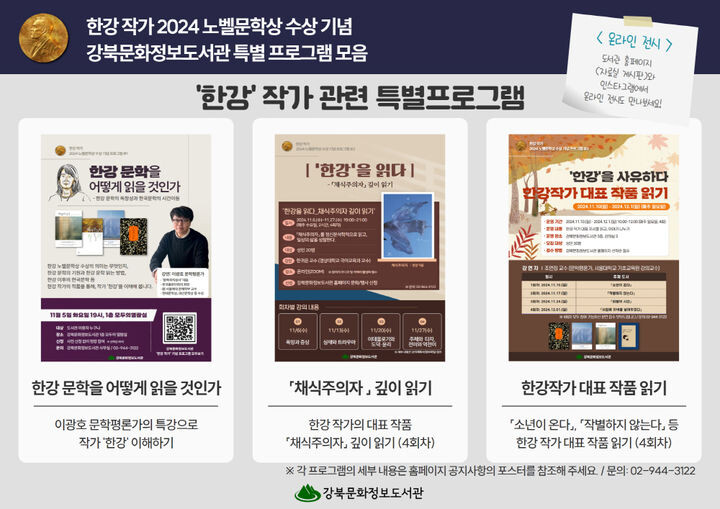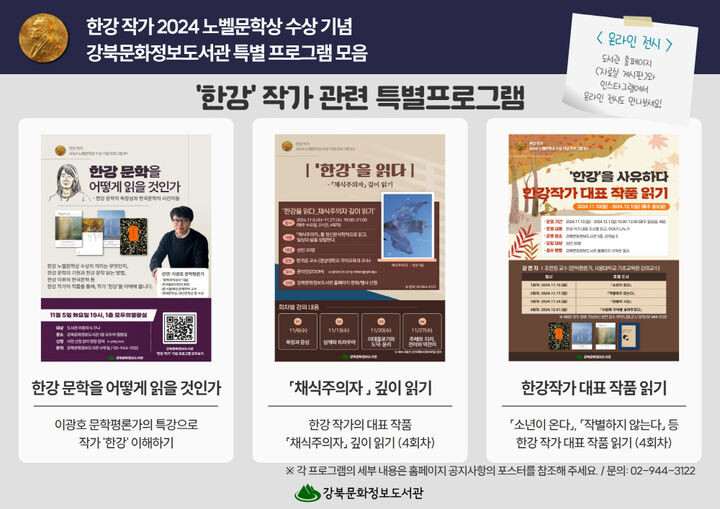
Gangbuk Cultural Information Library in Seoul is celebrating local author and Nobel Prize laureate Han Kang with a series of dedicated programs, as announced on November 6. Han, who has resided in Suyu-dong, Gangbuk-gu for over 20 years, has often referred to the area as a place she would like to return to. In honor of this special connection, the library has curated events that highlight the deep ties between Han Kang and Suyu-dong.
The program “Knowing Han Kang” offers an online exhibition detailing her life and career in connection with the Nobel Prize. Beginning on October 21, this virtual event is presented every Monday and will run for five weeks. The exhibition includes sections introducing Han’s literary journey, a selection of her works, and photographs of Suyu-dong where she lived. Upcoming exhibits will feature past Nobel Literature Prize-winning works and original illustrations from Han’s novel Human Acts.
The second segment, “Reading Han Kang,” is a deep-dive lecture series that interprets her novel The Vegetarian through a psychoanalytic lens, encouraging participants to reflect on life through her work. Led by Professor Han Gwi-eun of Gyeongsang National University’s Korean Language Education Department, the lecture series will take place online every Wednesday at 7 p.m. from November 6 to 27.
The third event, “Reflecting on Han Kang,” is a book discussion series centered around the social context of four of her most significant works. Facilitated by literary critic Cho Yeon-jeong, who teaches at Seoul National University, these discussions will be held every Sunday from November 10 to December 1 at 10 a.m. in the library. Participants are encouraged to join through the library’s official website.
Additionally, on November 5, the library hosted a lecture titled “How to Read Han Kang’s Literature” in the communal reading room. Renowned literary critic and publisher Lee Gwang-ho shared insights on the thematic roots of Han’s work, offering readers ways to understand the depth and breadth of her literary contributions.
Lee highlighted Han Kang's literary foundation and guided approach her complex themes, enriching participants' perspectives on her writing. Through these events, the library aims to create a meaningful literary experience, deepening readers’ appreciation of Han’s contributions to Korean literature and their community.
With Han Kang’s recent Nobel accolade, the Gangbuk Cultural Information Library hopes to foster a lasting impact on both local and global literary appreciation. This celebration also shines a light on the transformative power of literature, encouraging readers to explore, engage, and reflect on the profound narratives that Han Kang has shared with the world.
As Gangbuk’s literary tribute to one of its own, these events not only honor Han Kang but also create a bridge between the community and the author’s legacy, fostering a deeper connection with literature that transcends cultural boundaries.
Sayart / Joy, nunimbos@gmail.com









